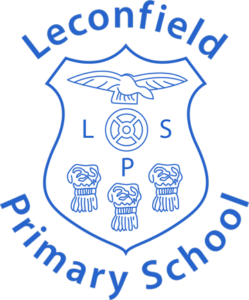Term dates
School year 2023-2024
| Autumn 2023 | Spring 2024 | Summer 2024 | |
|---|---|---|---|
| Open | Wed 6th September | Mon 8th January | Mon 8th April |
| Close half term | Fri 27th October | Fri 9th February | Fri 24th May |
| Open | Mon 6th November | Mon 19th February | Tue 4th June |
| End of term | Thur 21st December | Fri 22nd March | Fri 19th July |
School year 2024-2025
| Autumn 2024 | Spring 2025 | Summer 2025 | |
|---|---|---|---|
| Open | Wed 4th September | Mon 6th January | Tue 22nd April |
| Close half term | Fri 25th October | Fri 14th February | Fri 23th May |
| Open | Mon 4th November | Mon 24th February | Tue 3rd June |
| End of term | Thur 19th December | Fri 4th April | Mon 21st July |
‘Pupils move around the school sensibly.’
‘Across
the school, pupils behave well both in lessons and during social times.’
‘Pupils are confident that staff will help them if they have any concerns.’
‘Pupils are respectful of people with different backgrounds or beliefs.’
‘There are consistent routines and high expectations.’
‘The safeguarding of pupils is a priority in school. Staff know pupils and families well.’
‘ Children learn to read as soon as they start at school. Welltrained staff skilfully help children to read with increasing confidence.’
‘Leaders are working to further improve their curriculum.’
‘Teachers encourage pupils
to read in a variety of ways.’
‘There are respectful relationships between adults and pupils.’
‘Pupils enjoy taking part in a wide range of extra-curricular experiences, such as rugby club and choir.’
‘ The early years staff know their children well.’
‘Pupils listen carefully to other people’s opinions.’
‘Pupils are supportive of one another’
‘One group of pupils is supporting the community to develop a sensory garden in
the local area.’
‘Learning builds on what pupils already know. Teachers have strong subject knowledge and support pupils to develop their reasoning skills.’
‘Leaders ensure that staff have the training and support to meet the needs of pupils with SEND’
‘Pupils enjoy attending this school.’
‘Children enjoy exploring the purposeful learning environment that staff have created for them.’
‘ Pupils, including those with special educational needs and/or disabilities (SEND), are given extra support if
they fall behind.’
‘Pupils learn how to stay safe, including when using the internet.’
‘Leaders know how important it is for pupils to enjoy reading.’
‘Leaders and teachers promote a respect of different cultures and ideas.’
‘Pupils feel safe in school. Bullying is rare.’
‘Leaders encourage pupils to take on responsibilities in school.’
‘Staff have given careful thought to what
children will learning each term.’
‘Pupils learn to develop their independence from an early age.’
‘One pupil, typical of many, said, ‘We should treat others as we expect to be treated ourselves.’
‘Pupils enjoy their role as ambassadors for the school, welcoming visitors and organising fundraising events.’
‘In
mathematics, the ‘small steps’ of knowledge that pupils must learn are clearly identified.’



